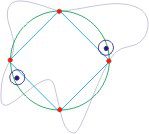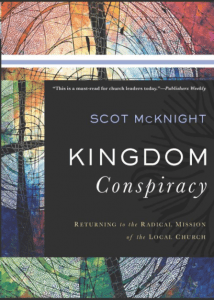 A kind reader has recently read my Kingdom Conspiracy, observed that he had seen a view along my line in none other than I.H. Marshall, and sent it to me to read.
A kind reader has recently read my Kingdom Conspiracy, observed that he had seen a view along my line in none other than I.H. Marshall, and sent it to me to read.
Here it is — Howard and I both teach that the kingdom is a people, and that people is the church.
The Kingdom of God and Israel
We must next ask what Jesus envisaged as the result of the establishment of the KG. The traditional hope was, as we have seen, for the setting up of a new kingdom in the presence of God at the end of the age in a cosmic setting; it would be composed of people who loved and served God and who lived together in righteousness and peace under the rule of God and his agent the Messiah. The Jews believed that they themselves would compose this people. The KG is thus a corporate entity and consists of people. Hence the mission of Jesus involved the creation of a people who would be the objects of God’s rule and who would receive the benefits of his rule. Since Jesus warned the people of Israel that as a nation they were in danger of being rejected by God, he must have envisaged the creation of a new people, incorporating elements of the old people but also open more widely and constituted by a new allegiance. Along with his proclamation of the KG, he also called people to personal allegiance to himself as disciples and taught them that they must obey his words. The conclusion is irresistible that response to the message of the KG was identical with acceptance of Jesus as Master. The new Israel is constituted by its allegiance to the Messiah. The recognition that Jesus was concerned with the creation of a new Israel is not new. Again we owe to A. M. Hunter the lapidary statement that ‘the Kingdom of God implies a new Israel’,42 but it is Ben F. Meyer who has given
[p.229]
the most concentrated expression to this thought in recent writing. He asks: ‘Why indeed should the reign of God have been the object of a proclamation to Israel as such unless it bore on the destiny of Israel as such?’43 Here two key texts must be mentioned. The first is the enigmatic saying recorded in differing forms by Matthew and Luke (Matt. 19.28/Luke 22.29f. Q:
Truly, I say to you, in the new world, when the Son of man shall sit on his glorious throne, you who have followed me will also sit on twelve thrones, judging the twelve tribes of Israel. As my Father appointed a kingdom for me, so do I appoint for you that you may eat and drink at my table in my kingdom, and sit on thrones judging the twelve tribes of Israel.
Common to both forms of the saying is the idea of rule by Jesus which will be shared in the world to come by the twelve disciples as they sit on thrones and judge the tribes of Israel. There must be an element of symbolism in the saying, recorded as it is by Luke in the context of the prophecy of the betrayal by Judas (though Luke later records the appointment of a replacement for Judas). But a literal understanding of the saying is unlikely since it takes no account of the place of the Gentiles (whether in the eyes of Jesus or of the Evangelists). The thought is of privilege for the faithful followers of Jesus who have shared in his earthly ministry to Israel, and the privilege appears to be that of sharing in the judgement on the unbelieving people of Israel rather than of ruling over a reconstituted Israel. Is the saying, then, anything more than a symbolical way of stating that the disciples will share in the KG but unbelieving Israel will be condemned, or, rather, that a division will be carried through among the Jews on the basis of belief and unbelief? It is not likely, then, that this text speaks of a ‘new’ physical Israel ruled by the twelve, but it certainly prophesies the end of the old Israel.44
The other crucial text is Matthew 16.18 where Jesus prophesies that he will build his Church on ‘this rock’ and that it will not be overcome by the powers of death. The authenticity of this saying is much disputed, and we owe to Ben F. Meyer a spirited defence of it.45 In the light of the Dead Sea Scrolls the language has been shown to be definitely Palestinian, and there are no conceptual reasons for denying it to Jesus. In effect, the sole remaining reason for not accepting it is its absence from the other Gospels, especially from Mark and Q; but it is curious reasoning that would reject a saying simply because it is not attested in the other Gospels or their sources.46 If the saying is genuine, it expresses the purpose of Jesus to establish a people whom he describes as ‘my people’. Coming immediately after Peter’s confession of Jesus as the Messiah, this must mean ‘the people of myself as Messiah’. Here, therefore, we have an express statement of the intention of Jesus
[p.230]
to form a people to whom is given a name used of Israel as the people of God; compare how Stephen could refer to ‘the church in the wilderness’ (Acts 7.38). Moreover, the statement has a cosmic dimension with its reference to ‘the powers of death’, and Jesus goes on to speak of the keys of the Kingdom of heaven entrusted to Peter, which suggests that in some way the people and the KG are closely related. After the disastrous effect of the medieval equation of the KG with the Church, seen in the increasingly secular and unchristian expression of authority claimed by church leaders and in the refusal to recognize the saving rule of God outside the Catholic Church, there has been a strong reaction against the identification of the KG as the Church. Indeed, the current understanding of the KG as God’s activity of ruling rather than as the area or people over whom he rules has strengthened the case. But we have seen that this modern understanding of the phrase ‘KG’ is one-sided and inadequate. The KG is not just the sovereign activity of God; it is also the set-up created by the activity of God, and that set-up consists of people. Hence the people created by Jesus is a manifestation of the KG: ideally they are the people who accept the rule of God through Jesus and on whom he bestows the blessings of his rule. The Church as the people of God is the object of his rule and is therefore his Kingdom, or at least an expression of it, imperfect and sinful though it is. We should not be afraid of recognizing this fact, despite the misuse of it in the past. Although the Church has the promise of sitting in judgement on the world (1 Cor. 6.2), which may be in effect a reinterpretation of the saying about the Twelve sitting in judgement on the tribes of Israel, this is a purely future role, and there is no justification for exercising it here and now. Indeed, the danger is already guarded against by the sayings of Jesus which insist that leadership is a matter of humble service and which warn the disciples categorically against desiring position and privilege. It is true, of course, that there will be leaders in the Church, but they have been given the pattern of humility and service that they must follow by Jesus.47
http://static1.1.sqspcdn.com/static/f/38692/334570/1271248893657/The+Hope+of+a+New+Age+-+The+Kingdom+of+God+in+the+New+Testament.pdf?token=j3JRjubIp1aYFVM1UPRlaAvncKo%3D


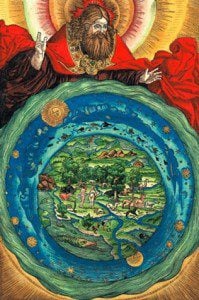 By the time of the Reformation (Luther nailed his theses to the door in 1517), Copernicus (mid 1500’s) and Galileo a bit later in the early 1600’s, a spherical earth was not terribly controversial. Columbus sailed west in search of a route to the Far East in 1492. The idea of a sun-centered solar system introduced by Copernicus, accepted and popularized by Galileo, was controversial. Many arguments were raised against the idea, only some of which were grounded in Scripture. It was not at all unreasonable for the church to take an attitude of wait and see. It was unfortunate that the church authorities chose to make definite pronouncements against the ideas advanced by Copernicus, Galileo and others. It wasn’t until Newton’s theory of gravity made the scene (late 1600’s) and more refined astronomical measurements followed (1700’s) that Galileo and Copernicus were fully vindicated.
By the time of the Reformation (Luther nailed his theses to the door in 1517), Copernicus (mid 1500’s) and Galileo a bit later in the early 1600’s, a spherical earth was not terribly controversial. Columbus sailed west in search of a route to the Far East in 1492. The idea of a sun-centered solar system introduced by Copernicus, accepted and popularized by Galileo, was controversial. Many arguments were raised against the idea, only some of which were grounded in Scripture. It was not at all unreasonable for the church to take an attitude of wait and see. It was unfortunate that the church authorities chose to make definite pronouncements against the ideas advanced by Copernicus, Galileo and others. It wasn’t until Newton’s theory of gravity made the scene (late 1600’s) and more refined astronomical measurements followed (1700’s) that Galileo and Copernicus were fully vindicated. Because God created the universe (making it a reliable revelation) and us with senses, language, and intellect, as his image bearers, it is entirely proper to use information derived from study of the universe to aid in the proper interpretation of Scripture. “Galileo adds that “it would be proper to ascertain the [scientific] facts first, so that they could guide us in finding the true meaning of Scripture.” (p. 143). Lamoureux points out that we all do this, we interpret the immovability of the earth, the rising and setting of the sun, and the vault above as phenomenological statements not scientific statements. We interpret the pillars of the earth and the storehouses of hail as poetic rather than scientific.
Because God created the universe (making it a reliable revelation) and us with senses, language, and intellect, as his image bearers, it is entirely proper to use information derived from study of the universe to aid in the proper interpretation of Scripture. “Galileo adds that “it would be proper to ascertain the [scientific] facts first, so that they could guide us in finding the true meaning of Scripture.” (p. 143). Lamoureux points out that we all do this, we interpret the immovability of the earth, the rising and setting of the sun, and the vault above as phenomenological statements not scientific statements. We interpret the pillars of the earth and the storehouses of hail as poetic rather than scientific. (1) Withhold judgment on scientific matters until there is a clear consensus. It isn’t necessary or desirable to shoehorn every new idea into theology. Nor is it wise to reject ideas early, before all the evidence is in. We can afford to be generous and exercise intellectual humility. Science doesn’t impact key claims of the Christian faith – the nature of God or his relationship with his creatures, the incarnation, crucifixion and resurrections.
(1) Withhold judgment on scientific matters until there is a clear consensus. It isn’t necessary or desirable to shoehorn every new idea into theology. Nor is it wise to reject ideas early, before all the evidence is in. We can afford to be generous and exercise intellectual humility. Science doesn’t impact key claims of the Christian faith – the nature of God or his relationship with his creatures, the incarnation, crucifixion and resurrections. (6) Respect expertise – whether you ultimately agree or disagree. This is important for our witness as Christians.
(6) Respect expertise – whether you ultimately agree or disagree. This is important for our witness as Christians.

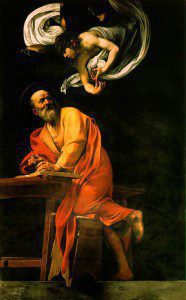
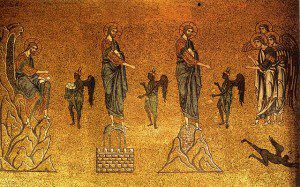 (4)
(4) 
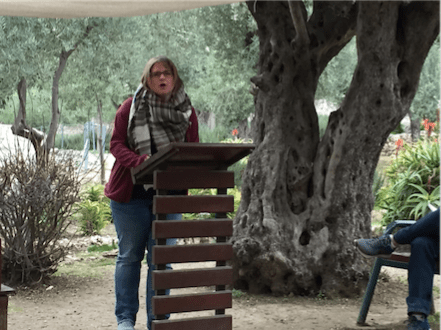
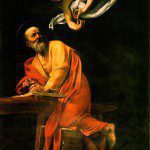
 In his recent book
In his recent book 

